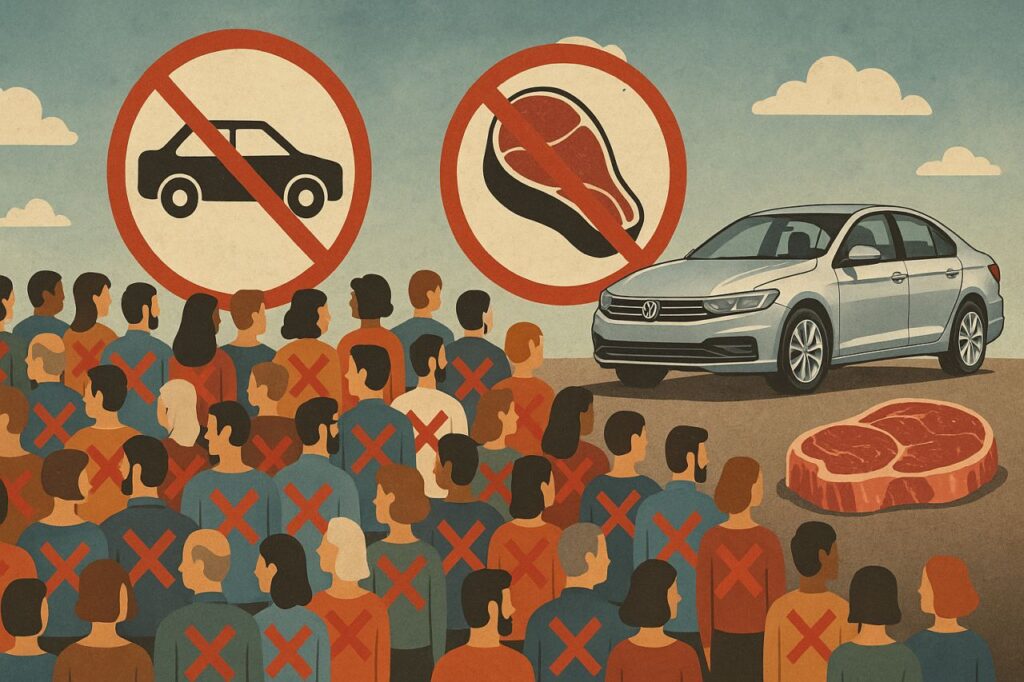The majority of Germans are hesitant when it comes to climate protection. While awareness of environmental issues is considered high, personal sacrifices such as giving up meat or phasing out combustion engines meet with resistance. According to a recent survey, many citizens see too much pressure and too little incentive in current climate policy. Environmental protection will only gain acceptance if measures offer direct benefits. The public also expects rewards rather than burdens – a clear signal to politicians. (stern: 10.11.25)
Majority favors benefits over coercion
The majority rejects government-mandated interventions. 69 percent oppose a ban on the production and sale of combustion engines, and the same number oppose restrictions on meat purchases. Price increases for airline tickets also find little support. This attitude is prevalent across the population, regardless of income or region. Particularly striking: When environmental protection offers advantages, acceptance increases significantly.

Subsidies for energy-efficient housing are among the most popular measures. According to the survey, 69 percent support government grants for renovations. Investments in domestic industry are also considered sensible. 71 percent call for increased domestic production to shorten transport routes and reduce emissions. The majority thus prefers financial incentives to coercive measures – a pattern that runs through many policy areas.
Majority prefers rewards to punishments
Instead of preaching abstinence, many expect concrete improvements. Clear regulations for companies with high emissions are particularly popular. 66 percent advocate for higher taxes on climate-damaging businesses. A ban on single-use plastics also enjoys broad support. This shows that the population views climate protection more as the responsibility of businesses and less as a personal burden.
These results come from a survey commissioned by Stern magazine on the occasion of the UN Climate Change Conference in Belém, Brazil. The YouGov Institute conducted the survey and painted a nuanced picture of public opinion. The majority wants environmental protection as long as it doesn’t make everyday life more expensive or restrictive.
Society Between Aspiration and Reality
Although 63 percent are concerned about climate change, the willingness to make sacrifices is declining. Only 46 percent remain optimistic that the worst consequences can still be prevented – provided that profound changes are implemented. 16 percent consider the current course sufficient, while 15 percent have given up hope of saving the climate.
There is a contradiction between the desire for sustainability and everyday life. Climate policy must therefore create incentives instead of punishing. Environmental policy needs acceptance, not paternalism. Only when the population feels involved can real progress be achieved. The majority is sending a clear signal: climate protection, yes – but please, with a sense of proportion.
